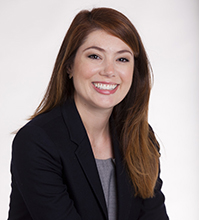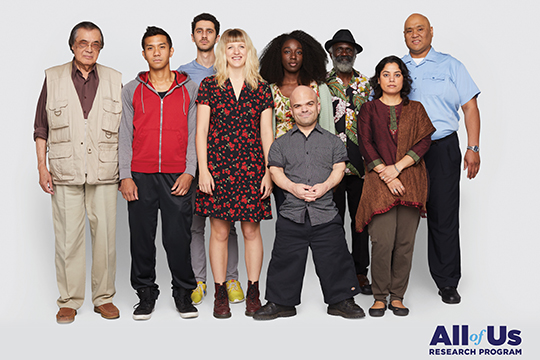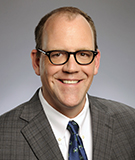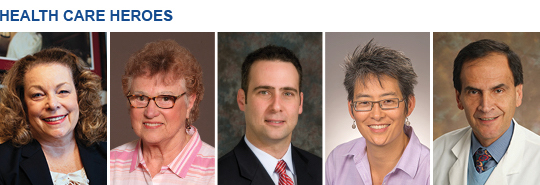|  | |
 |
| Thanks for many months of effort | Last week I was pleased to announce the exciting news that Emory Healthcare and Kaiser Permanente have signed an agreement to collaborate in advancing patient- and family-centered care in metro Atlanta and beyond through the development of a new care model. Beginning this fall, Emory Saint Joseph's Hospital and Emory University Hospital Midtown will become the primary hospitals for Kaiser Permanente physicians and members in the Atlanta market.
We will be finalizing the details over the coming months, and I look forward to sharing further information as it becomes available.
In the meantime, I must express my gratitude to the large group of faculty and staff who have worked so diligently on this project over the course of many months. Reaching this agreement required a tremendous effort, and we would not be here today without our team members' valuable contributions.
Today, as always, I'm proud of the work we do to advance care and promote health--and especially the manner in which our team comes together to push the boundaries of what’s possible.
Please direct questions and comments to evphafeedback@emory.edu. | |
| |
| Innovation hub aims to drive tech R&D to improve outcomes, lower costs | Emory Healthcare recently announced the upcoming September 1 launch of the Emory Healthcare Innovation Hub, created to identify and solve consumer-centric problems in the health care industry.
Scott Boden, VP for business innovation in Emory Healthcare, says this new program differs from most existing innovation models and accelerator programs, which focus on "finding technologies and then matching them with problems." Emory's hub takes the opposite approach, "focusing on identifying consumer and clinical unmet needs and then matching them with investable solutions." Its goal is to maximize technology to improve outcomes while minimizing costs.
The hub will engage expertise from across the university, especially in medicine, business, law, nursing, and public health, providing opportunity for "interested Emory faculty, staff, and students to take an active role in accelerating health care innovation using digital IT solutions," says Boden.
The hub also will partner with outside organizations. For example, Emory Healthcare is partnering with Innovation Hub Enterprises, a local research, design, and innovation strategy firm to oversee the direction and operation of the hub and the associated venture fund that will help in commercialization of innovative ideas.
EHC is also partnering with Sharecare to serve as the hub's lead digital health sponsor. Over the coming months, other strategic partners will be invited to join the hub, representing all aspects of the health care continuum, including cloud-based computing, artificial intelligence, wearable devices, the insurance industry, large self-insured employers, and government agencies.
"The hub will incubate solutions that use the core services of our partners and create new revenue-generating and scalable opportunities for those involved," says Boden.
Boden is overseeing formation of the hub in collaboration with leaders in the office of technology transfer, information technology, Woodruff Health Sciences Center, and Goizueta. A national search for a full-time director of the hub is currently under way. In the coming months announcements will be made regarding opportunities to engage with the hub and to submit ideas for prioritization for funding. Read more. | |
| |
| 2018 Georgia legislative highlights |  | Kallarin Mackey |
The 2018 State Legislative Session of the Georgia General Assembly marked another successful year for health care at Emory. The 2019 state budget reached a historic $26.2 billion, which includes several provisions benefiting Emory:
- The legislature appropriated $600,000 to expand Emory's electronic intensive care unit program into more rural Georgia hospitals.
- The legislature also appropriated funding for four Emory OB/GYN residency slots and three existing psychiatry residency slots.
- The Emory Autism Center's partnership with the Georgia Department of Public Health received an increase of $100,000 in funding.
Emory continued to support the protection of the Certificate of Need (CON) process this year and worked with others in the hospital industry to defeat multiple measures that attempted to weaken the program. Preservation of CON ensures availability of adequate health care services to meet the needs of all Georgians.
Several pieces of legislation that impact the hospital community received final passage. A bill that stemmed from the recommendations of the House Rural Development Council establishes the Rural Health System Innovation Center and the creation of micro-hospitals (defined as a hospital in a rural county that has at least two and not more than seven inpatient beds and provides emergency services 24/7. The legislation allows for the creation of micro-hospitals without requiring a new CON when a hospital is closing or recently closed and is purchased by a hospital in a contiguous county. For more information, see the full text of the bill here.
The legislature also passed a measure that increases the age of coverage for the treatment of autism spectrum disorders from six to 20 years old and expands the limit on coverage from $30,000 to $35,000 per year.
Legislation intended to address opioid abuse failed to receive final passage this year. The legislature will likely take up the issue again next session.
An indication of the other topics that the legislature will look at next session are the study committees they will engage in over the months leading up to next year. Legislators interested in a particular topic can pass legislation to create a study committee, to be comprised of several members who will meet three to four times with various experts and stakeholders on the issue. The study committee can then make legislative recommendations for the upcoming session. Leadership in both chambers has the discretion to appoint the study committee. House or Senate committees available for appointment this year include topics such as prescribing patterns for antidepressants and other psychotropic medications, risks associated with kratom, professional licensing boards, CON reform, and retrospective ER policies. See full list.
View the complete 2018 Session Report. | |
| |
|  | Emory joins NIH All of Us Research Program to advance precision medicine | The NIH recently opened national enrollment for the All of Us Research Program—an effort to advance individualized prevention, treatment, and care for people of all backgrounds, in collaboration with partner institutions across the country. Emory is part of the program's SouthEast Enrollment Center (SEEC) network, which also includes the University of Miami Miller School of Medicine, Morehouse School of Medicine, and the OneFlorida Clinical Research Consortium led by University of Florida.
People 18 and older, regardless of health status, can enroll. The overall aim is to enroll 1 million or more volunteers in communities that have been under-represented in research to make the program the largest, most diverse resource of its kind.
Michael Zwick, WHSC assistant VP for research leads Emory's participation in the SEEC network, working with Alvaro Alonso from Rollins School of Public Health and medical faculty Greg Martin, Arshed Quyyumi, James Lah, and Andrew Post.
Precision medicine considers differences in people's lifestyles, environments, and biological makeup, including genes. By partnering with 1 million diverse people who share information about themselves over many years, the program will enable more precise prevention and treatment of a variety of health conditions.
The SEEC network will help extend the geographic coverage of the program to Georgia and Florida and will strengthen its reach within underserved communities, including lower-income, Hispanic and Latino, African American, American Indian, and rural communities.
All of Us seeks to transform the relationship between researchers and participants, bringing them together as partners to inform the program's directions, goals, and responsible return of research information. Participants will be able to access their own health information, summary data about the entire participant community, and information about studies and findings that come from All of Us.
To learn more about Georgia enrollment in the project through Emory, email: allofus@emory.edu or call 404-778-1284. Read more. | |
| |
|  | | Status of cancer biosimilar drugs | Donald Harvey, director of Winship's Phase 1 Clinical Trials Section, co-authored a recent article in New England Journal of Medicine about the growing availability of biosimilar drugs, their potential cost-savings, and how they can be safely used in clinic. Like generic versions of chemically synthesized drugs, biosimilar medications offer potential cost savings if they can be safely and efficiently substituted for their patented biologic counterpart drugs. Read more.
| | |
| | |  | | NPRCs launch educational resources about their work | Working collectively, the country's seven National Primate Research Centers (NPRCs), of which Yerkes is one, recently launched two educational resources, a website and a Twitter account, to raise awareness of their biomedical and behavioral research with animals to improve human and animal health. The site details NPRC research, answers frequently asked questions about research with animals, and provides contact information for each NPRC. Read more.
| | |
|
| |
|  | | | The Atlanta Business Chronicle selected five WHSC faculty members in its annual Healthcare Heroes awards competition: Sharron Close (nursing), Linda Grabbe (community outreach), Raul Nogueira (researcher/innovator), Lena Ting (allied health professional), and Guillermo Umpierrez (lifetime achievement). Read more. | |
| |
|  | Sept. 12: 1st Annual WHEA Symposium,
Transforming Healthcare Through Interprofessional Education & Collaborative Practice.
8:30-2:30, Emory Conference Center Hotel. More info and register.
| | |
| | |  | Oct 13: 8th Annual Winship Win the Fight 5K. 8:30, Quadrangle, Emory University campus. More info.
| | |
|
| |
|

